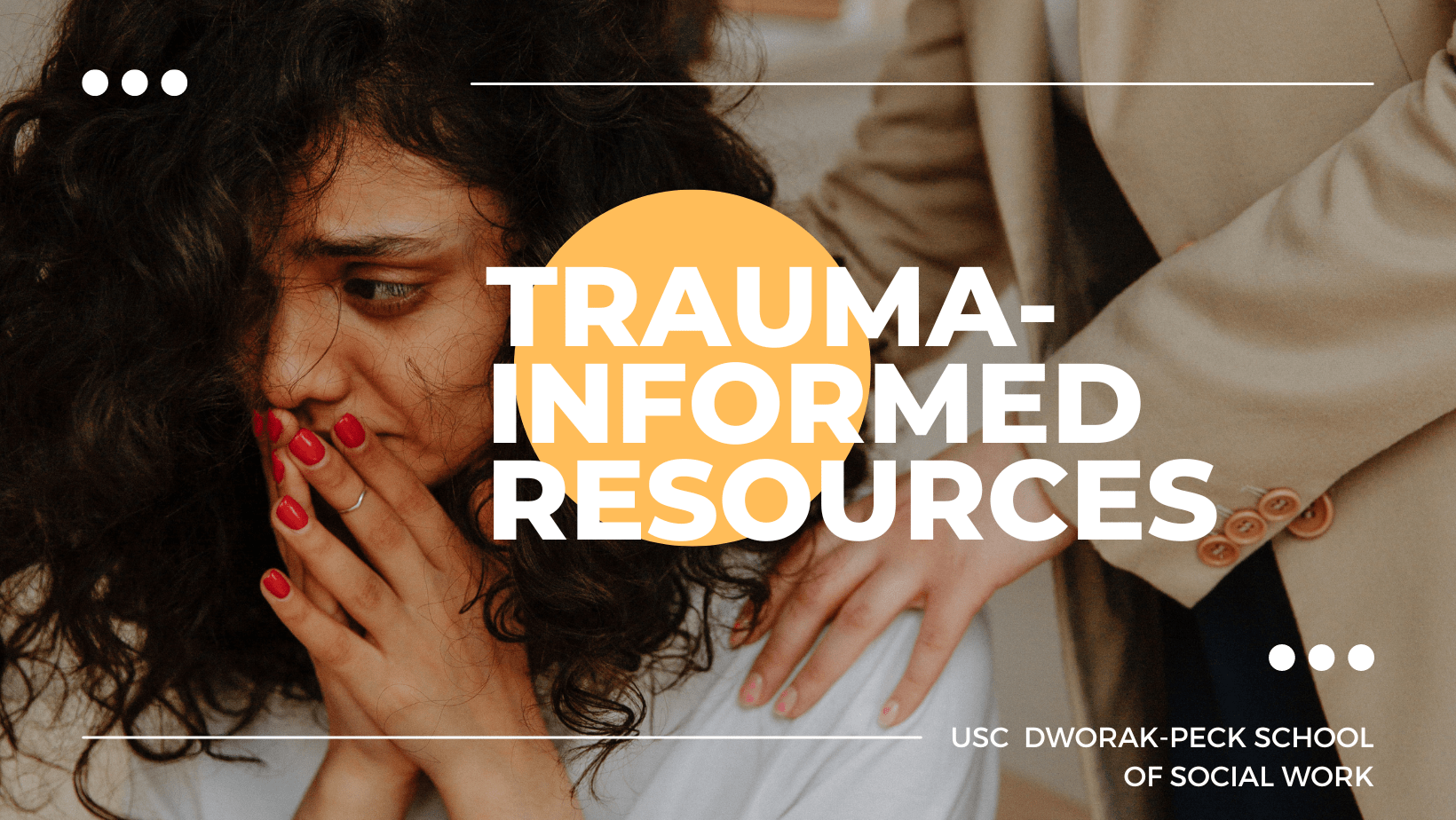Trauma-Informed Social Work
Learn More
Trauma can take many forms, from interpersonal violence, sexual assault, and medical trauma to natural disasters, institutionalized oppression, war-related trauma, and the sudden loss of a family member. According to the National Council for Behavioral Health, 70% of U.S. adults have experienced a traumatic event in their lifetimes. That means more than 223 million people are living with the effects of trauma in the U.S. alone.
Despite those numbers, the general public has very little understanding of the impact of trauma. Many people who have experienced trauma face doubt, judgment, and even the possibility of experiencing further related trauma. And the ramifications of those experiences can be profound. Due to prolonged and sometimes extreme stress, people who have experienced trauma are more likely to develop severe mental health issues, social and emotional problems, harmful coping mechanisms, and serious diseases.
Professional Resources
How To Be A Trauma- Informed School Social Worker
SAMSHA – Key Ingredients for Successful Trauma-Informed Care Implementation
How Social Workers Can Practice Trauma-Informed Care
Example of Care for Survivors of DV
Resources in Response to the Monterey Park Shooting
The recent mass shooting in Monterey Park, California, occurred in a predominately Asian American/Pacific Islander community following a weekend-long celebration of the Lunar New Year of the Rabbit. Although many details are still unknown, this tragedy has evoked a range of emotions and concerns of safety across the United States, specifically for the Asian American community. In response to this event, the National Child Traumatic Stress Network has developed resources to help children, families, and communities navigate what they are seeing and hearing, acknowledge their feelings, and find ways to cope together. These resources include:
- Coping After Mass Violence
- For Teens: Coping After Mass Violence (En Español)
- Parent Guidelines for Helping Youth After Mass Violence
- Talking to Children about Mass Violence
- Talking to Children: When Scary Things Happen (En Español)
- Creating Supportive Environments: When Scary Things Happen (En Español)
- Psychological Impact of Mass Violence
- Helping Teens with Traumatic Grief: Tips for Caregivers (En Español)
- Helping School-Age Children with Traumatic Grief: Tips for Caregivers (En Español)
- Helping Young Children with Traumatic Grief: Tips for Caregivers (En Español)
- Helping Youth After a Community Trauma: Tips for Educators (En Español, Mandarin)
- After a Crisis: Helping Young Children Heal (En Español)
- Age-Related Reactions to a Traumatic Event (En Español)
- Once I Was Very Very Scared (En Español)– children’s book for young children
- Pause-Reset-Nourish (PRN) to Promote Wellbeing (En Español) (for responders)
Psychological First Aid
The NCTSN also has resources for responders on Psychological First Aid (PFA; En Español, Manadarin). PFA is an early intervention to support children, adolescents, adults, and families impacted by these types of events. PFA Mobile and the PFA Wallet Card (En Español) provide a quick reminder of the core actions. The PFA online training course is also available on the NCTSN Learning Center. PFA Handouts include:

